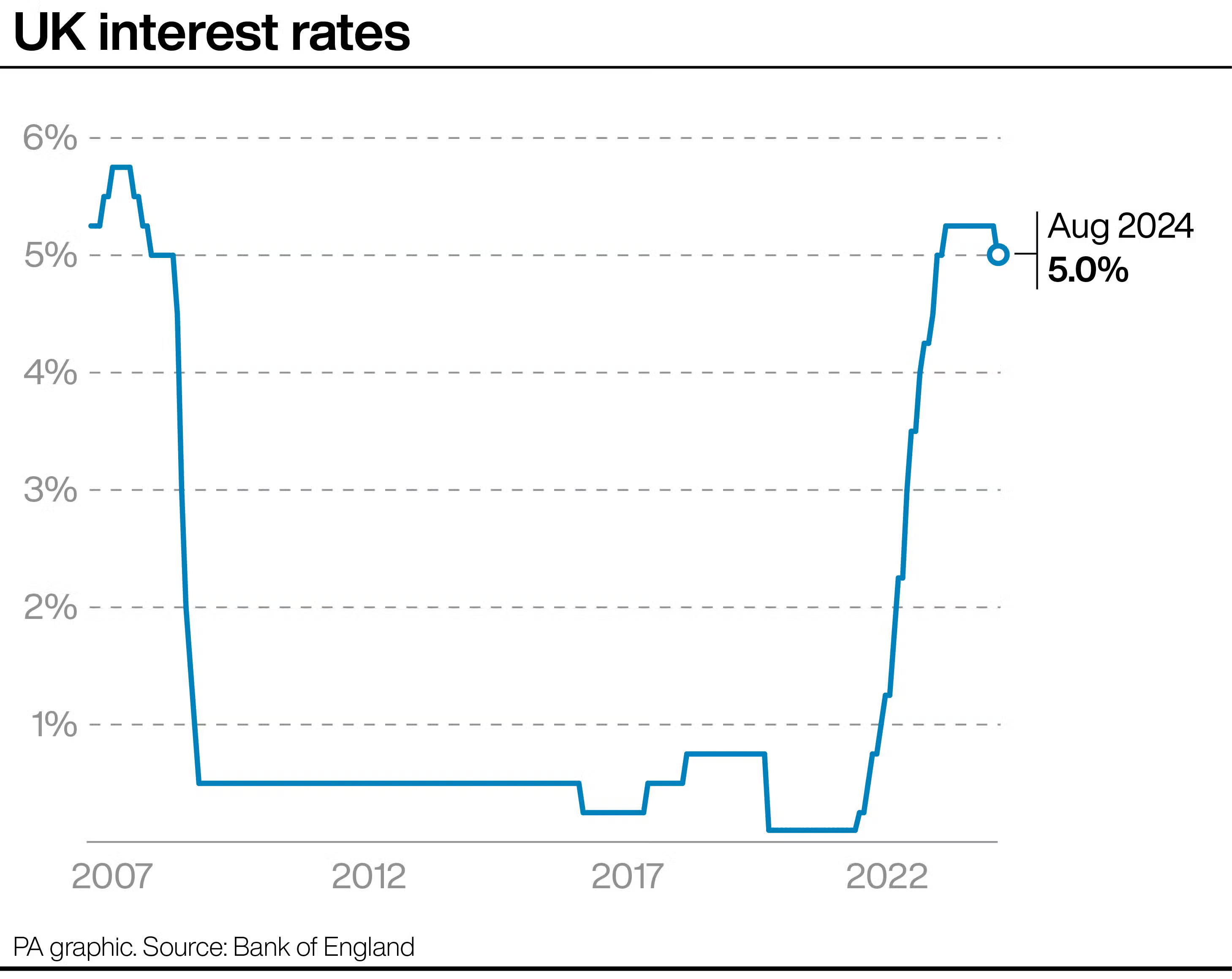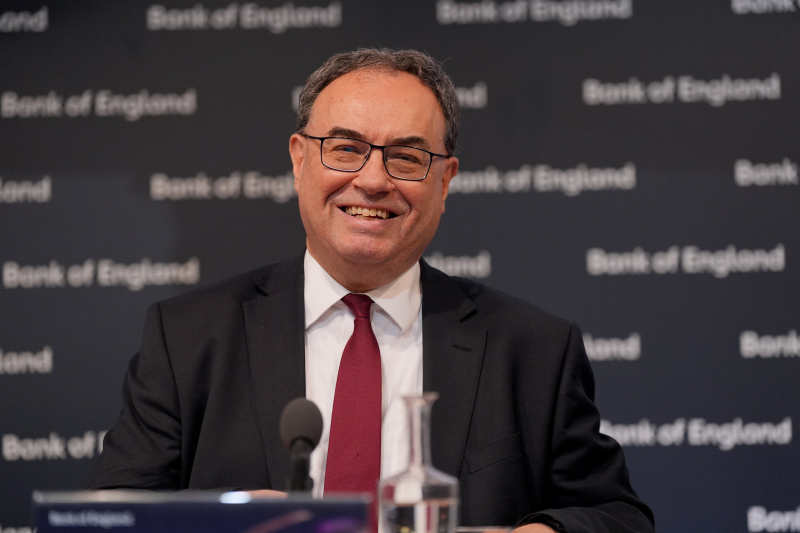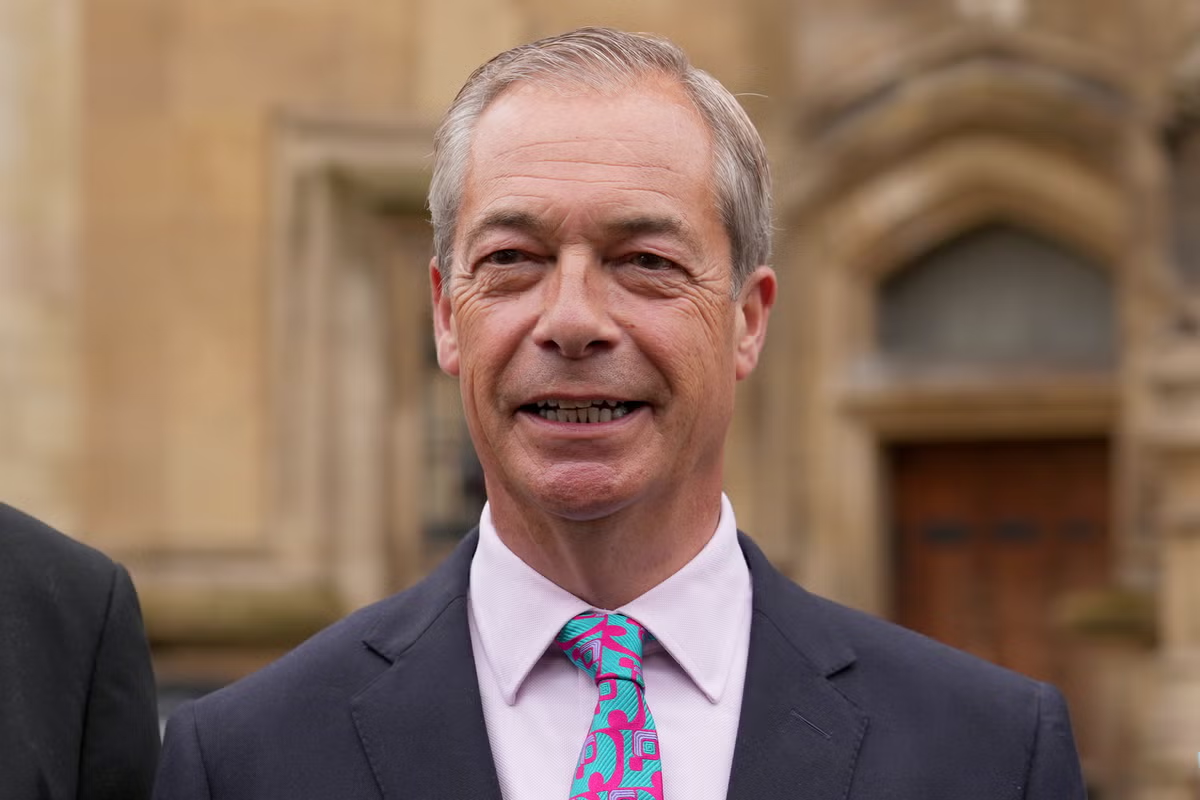
UK interest rates have been cut for the first time in more than four years, releasing some pressure on borrowers as the Bank of England was encouraged by signs that inflation has slowed.
The Bank reduced rates from 5.25% to 5%, following a split vote which saw some members of the Monetary Policy Committee (MPC) prefer to keep the level unchanged.
Governor Andrew Bailey, who voted for a cut, said “inflationary pressures have eased enough that we’ve been able to cut interest rates today”.

But he signalled that the central bank was going to be careful not to cut rates too quickly going forward.
Borrowing costs had been held at 5.25% – the highest level in 16 years – since August last year.
Thursday’s decision marks a turning point for the Bank, which has not implemented a rate cut since the onset of the Covid-19 pandemic in 2020.
It means that while rates remain elevated, mortgage costs could start to come down further while savings rates offered by banks could be reduced.
Five of the MPC’s nine members felt a 0.25 percentage point cut was appropriate after seeing evidence that factors putting pressure on overall inflation across the UK had eased.
It comes after official figures showed the rate of Consumer Prices Index (CPI) inflation hit the Bank’s 2% target level in May and June, indicating that overall price rises had been brought under control.
However, four members of the committee, including the Bank’s chief economist, Huw Pill, voted to keep interest rates at 5.25% for longer.
Read More
Those policymakers felt they needed to wait for “stronger evidence” that the risks of underlying inflation pressures were not going to worsen.

These pressures include services inflation, stronger-than-expected economic growth and elevated wage rises, which have remained a concern for the Bank.
Furthermore, CPI inflation is predicted to increase to around 2.75% in the second half of the year, slightly higher than previous estimates, due to a smaller-than-expected drag from energy bills.
Mr Bailey signalled that rates would fall more gradually than they have risen over the past few years.
He said “we need to make sure inflation stays low, and be careful not to cut interest rates too quickly or by too much”.
“Ensuring low and stable inflation is the best thing we can do to support economic growth and the prosperity of the country,” he added.
Meanwhile, the Bank of England expects the UK economy to grow by 1.25% this year, higher than its previous outlook of a 0.5% rise.
It kept its outlook the same for economic growth in 2025 which it expects to dip to 1%.
Based on interest rate expectations among financial markets, the Bank predicted that CPI inflation could drop as low as 1.7% in the next three years.
Disclaimer: The copyright of this article belongs to the original author. Reposting this article is solely for the purpose of information dissemination and does not constitute any investment advice. If there is any infringement, please contact us immediately. We will make corrections or deletions as necessary. Thank you.



